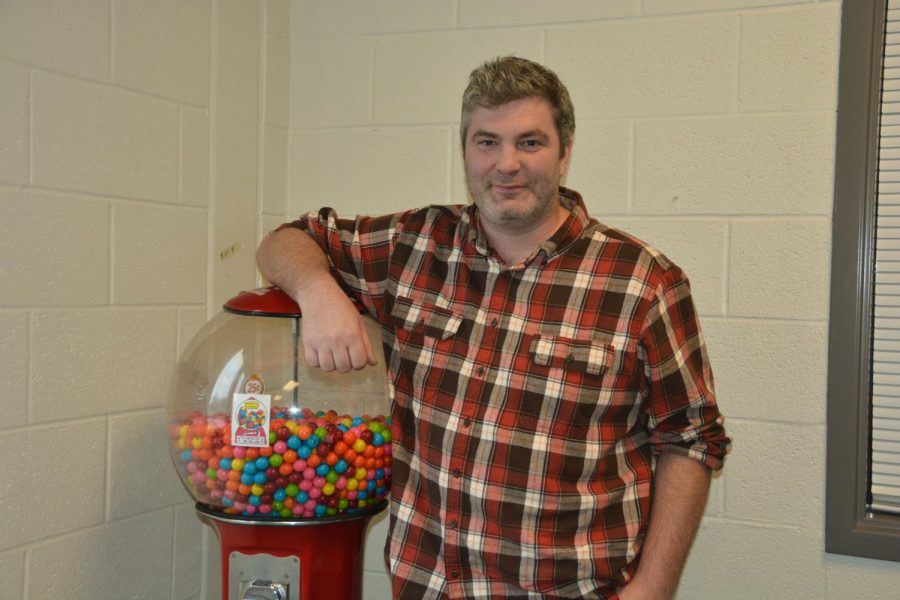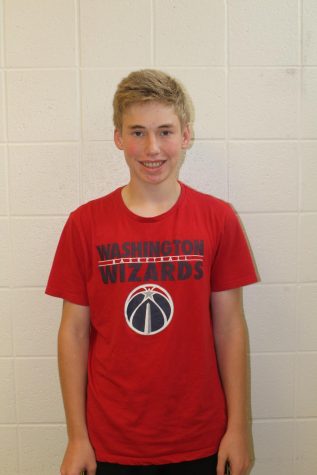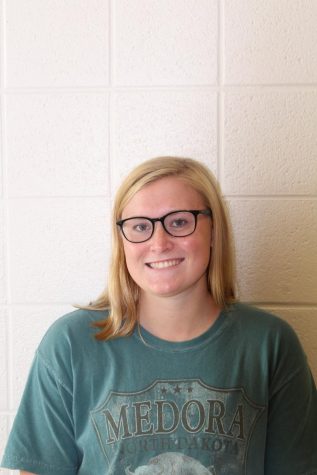“Jeepers Creepers:” Whitman teachers have lots of catchphrases
January 14, 2020
If you walked by a teacher’s classroom, you’d see nothing but the standard — a teacher standing at the front, lecturing from the Promethean board or a teacher grading quizzes. But, inside the classroom, students learn so much more about a teacher’s personality and funny quirks — including catchphrases. In the slideshow above, check out some of the most unique teacher catchphrases at Whitman.
Peyton Ford, Chemistry: “We’re not playing for second. Are you?”
Ford commonly says, “We’re not playing for second” before his students take an assessment, reminding them what they’re aiming for: to do their best on the test. He says that the beauty of his catchphrase is the universal application. It can apply to any person in any situation. Ford also thought his catchphrase was “catchy.”
Sean Reid, AP Chemistry: “I’m just giving you the business.”
This infamous catchphrase originated when Reid was a teenager. During an NFL game Reid was watching, a referee threw a flag on the play, claiming that a defensive back was “givin’[the wide receiver] the business,” for unnecessary roughness. The phrase stood out to Reid, and it stuck.
Students report that some of his other catch phrases include:
“Ain’t no thing.”
“I hope that almost makes sense.”
“Take your five.”
“Let me get ya my man.”
“Group up or fly solo, but let’s do what we do.”
David Fantegrossi, Pre-Calculus: “Jeepers creepers.” “David don’t care.”
Fantegrossi doesn’t have the same level of pride in his catchphrases compared to other teachers. He believes that his catchphrases are very “sad sack” and he wishes he didn’t use them, he said. Fantegrossi’s catchphrase, “Jeepers creepers,” probably derives from the 2001 movie Jeepers Creepers. The movie is about flesh eating creature that eats humans every 23 years.
Kenneth Heckert, History: “Make it a great day.”
This phrase is a mantra that Hecket has tried to live by for many years. His dad taught him that you have bad moments every single day, but we have a choice to make: we can either dwell on the negative, or we can choose to find the positive. Because Heckert is a Philadelphia Phillies fan, he had one of these bad moments when the Nationals won the World Series, but when he remembered many of his students were happy, he made that the center of his day.
Cody Therrien, AP Language: “Plethora” and “Perouze”
Therrien uses these words a lot, and his students have started to use them in their writing “possibly to poke fun at me but it’s all in good fun,” he said. Therrien recalls that many years ago, he was watching the movie, The Three Amigos, which has a funny scene about the word plethora. He explained that the word perouze is a contronym — a word with two contrasting definitions — to plethora. “Perouze” officially means to read something very closely and annotate it, but people generally use the word to mean “skim over.”
Allison Hayes, Physics: “Close your eyes and take in a very slow, deep breath. Continue breathing deeply and feel the cool air come in through your nose and flow all the way down to your stomach. Feel your stomach expand out as you breathe deeply. Allow the breath to fill up your whole body. Keep breathing in and out slowly, deeply.”
Hayes gives these directions as a part of her classes’ daily meditation, designed to help students focus solely on their breathing. This way, when class starts, they’re calm and ready to learn. Hayes learned about the routine over the summer on her silent meditation retreat in Thailand.
Terry Alvey, Band: “If you don’t know what note to play, put a flat in front of it.”
The beginning of Alvey’s year revolved around the pit orchestra for the musical, The Hunchback of Notre Dame, so she used this catchphrase frequently during rehearsals. Orchestra members played in difficult key signatures filled with flat notes — flats and sharps are the accidentals placed in front of notes to help with pitch. Alvey said to “put a flat in front of it” to the musicians because with Hunchback songs, there’s most likely going to be a flat in front of the note.
Danielle Fus, English 10 and 11: “Stop standing at the door like animals, waiting to be slaughtered.”
At the end of class after Miss Fus’ students put their chromebooks in the cart, they stand at the door with their backpacks on. Fus likes to make fun of them because it’s like at a farm when animals are stupidly waiting to go into the slaughterhouse “because they don’t know what comes next,” said Fus.
Fus hoped that this has a negative implication for their students because students don’t want to be like studpid farm animals. “I’ll go sit at my desk like a cognizant human,” she said.
Ryan Derenberger, The Black & White Advisor and AP Language teacher: Too many
Derenberger keeps a list of phrases he says frequently right next to his desk, and his students have ridiculed him for this. Here is a list of a few of them.
“Admittedly…”
“Simply put…”
“Dare I say…”
“In any event…”
When asked for a comment on his catchphrases, Derenberger said:
“I’m the guy who is trying to work on this. I don’t see them as catchphrases; I see them as redundancies.”












